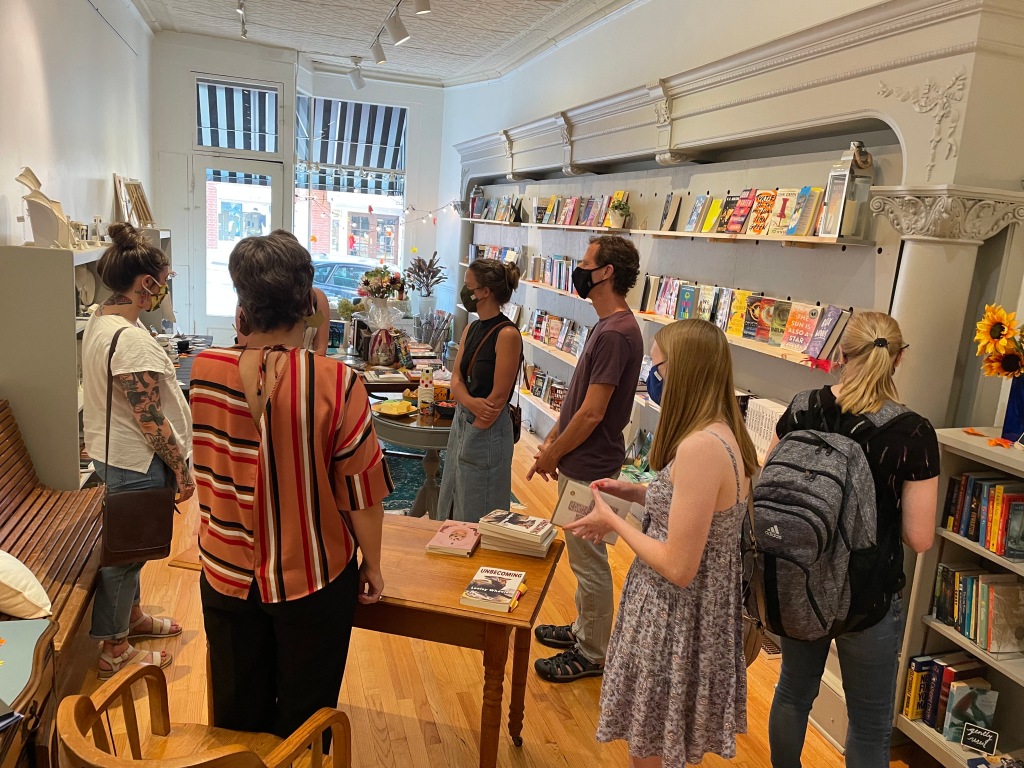The first paragraph from this famous essay by Eve Kosofsky Sedgwick just stopped me cold:
“Sometime back in the middle of the first decade of the AIDS epidemic, I was picking the brains of a friend of mine, the activist scholar Cindy Patton, about the probable natural history of HIV. This was at a time when speculation was ubiquitous about whether the virus had been deliberately engineered or spread, whether HIV represented a plot or experiment by the U.S. military that had gotten out of control, or perhaps that was behaving exactly as it was meant to. After hearing a lot from her about the geography and economics of the global traffic in blood products, I finally, with some eagerness, asked Patton what she thought of these sinister rumors about the virus’s origin. ‘‘Any of the early steps in its spread could have been either accidental or deliberate,’’ she said. ‘‘But I just have trouble getting interested in that. I mean, even suppose we were sure of every element of a conspiracy: that the lives of Africans and African Americans are worthless in the eyes of the United States; that gay men and drug users are held cheap where they aren’t actively hated; that the military deliberately researches ways to kill noncombatants whom it sees as enemies; that people in power look calmly on the likelihood of catastrophic environmental and population changes. Supposing we were ever so sure of all those things—what would we know then that we don’t already know?’’ -from “Paranoid Reading and Reparative Reading, or, You’re So Paranoid, You Probably Think This Essay Is About You”
Very different epidemic–AND a remarkably speedier development of treatments and vaccines (an observation I don’t think is paranoid)–but still, what foreshadowing in a piece originally published nearly 20 years ago! The essay goes on to analyze the contagiousness of suspicion as an approach to texts taken by literary critics and theorists, as in, “Let me expose the prejudices lurking behind this poem.” Rather than strive to forestall humiliation by the author-poet who wants to put one over on you, a reader could, she suggests, seek pleasure from a piece of literature, because life is pretty hard and art can make us feel better. That’s a gross oversimplication, and I’m not even touching on some really important aspects of the essay: how she describes each method working in queer theory plus the Freudian stuff (so much Freud…). Yet this essay grants a professor permission to be a fan as well as an analyst of poetry, and many others have taken it that way, too. What a pleasure to revisit it.
My first full week of teaching was exhausting, full of positive feelings about my students but inflected by pandemic fears, too. Cases are rising fast here. We’re in person, masked, but students are having tons of unmasked encounters–let’s call them encounters–in residence and dining halls and, I presume, at parties. Prepping for and teaching 6 90-minute classes is as hard as I remembered, even before the grading starts; things are high-powered here, with smart students chewing through material fast, something that’s both lucky and sometimes a major challenge to keep up with. And there are all the extras like advising, reference letters, department meetings and consultations, university-wide meetings and events, etc etc. I’m beat.
Yet I’m having fun, too. I’m prepping Sedgwick’s essay for a senior seminar called “Taking Literature Personally”; during that session we’ll try some paranoid and reparative reading of Frank O’Hara’s poetry (no spoilers, but my lesson plan involves crayons). For yesterday’s class, we read the poem “Philomela” and the essay “Nightingale” by Paisley Rekdal as well as the Ovid tale for background, which is infinitely darker material though just as powerful. Whatever the literature at hand, the flow experiences of rereading then planning discussions feels really good. I wish I had more time to linger in it, but I’m being strict with myself about stopping work when I’m tired. I’m an introvert who HAS to recharge and a grown-up person who HAS to rest and sleep. I’m doing okay at it for now.
The picture below is from my book signing here in Lexington this week. Office hours, teach two classes, assemble cheese plate, then hold court at an author event for 2 hours–it was ambitious for a Tuesday. Yet pleasurable, too. I’m sure I’ll feel the same about my Randolph College reading next week, where at least I don’t have to cater the refreshments. Meanwhile, here comes Friday night, a drink with a friend, a gentle hike tomorrow morning. As I used to tell myself during college hangovers: pacing, Lesley. Everything’s more fun when you get the pacing right.

2 responses to “Rereading Sedgwick, or, Oh Yeah, I Like Teaching”
Thanks for the reminder about that wonderful Eve Sedgwick. Also, Cindy Patton. Wow. As someone who was finally free to be me in the ATL in the ’80s, just as I found my community as a young woman, I witnessed a black hole devouring a galaxy of wonderful kind and talented young men — literally — until 9 out of every 10 were gone by the time the ’90s rolled in. It was beyond devastating and beyond terror. oh, yes, and classes here for the most part are simply off the chain. Good luck in your part of this Brave New World.
LikeLiked by 1 person
Wow, Can. It’s powerful to make the connection that you were there, observing. I remember being 15 at lunch in my Catholic high school cafeteria when someone commented on a newspaper article about AIDS, and how some of it unrolled for me right then: that the disease would be met indifferently or as justice by the prejudiced people around me. But in most ways I was cocooned.
LikeLike